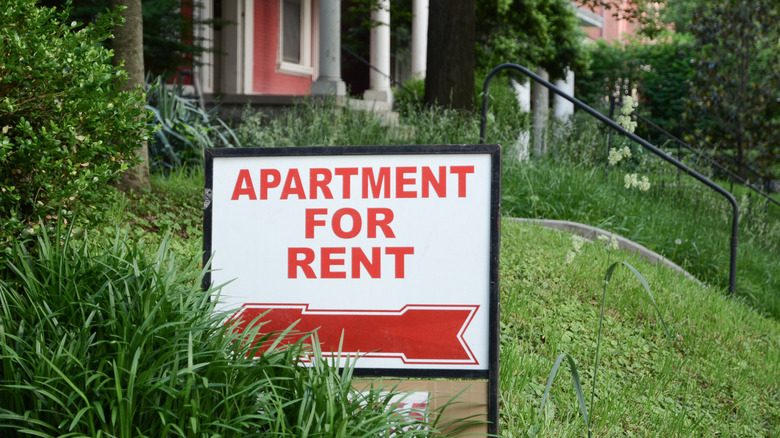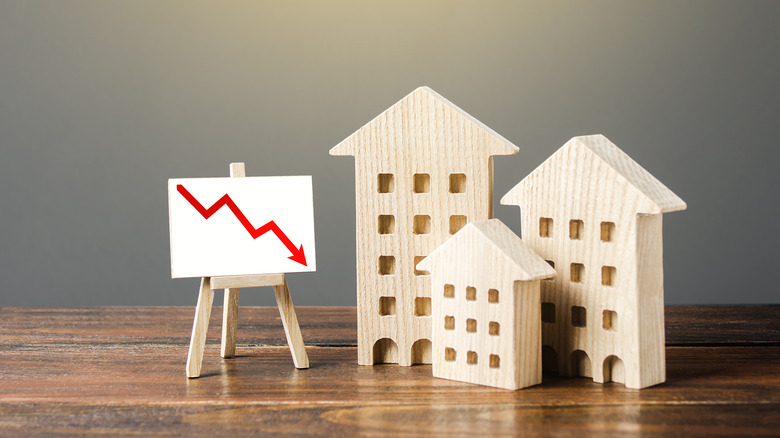Plummeting Rent Prices Could Mean An Upcoming Crash In The Rental Market
Over the past few years, rental prices have not been in favor of renters — In fact, Realtor says that average rates have risen over 20% since 2020. Because the housing market is also very expensive right now, many have been forced to pay these exorbitant amounts.
However, there is good news on the horizon and rent prices are declining. In fact, Apartment List says that the national rent went down by 0.8% in December of 2022 after beginning to decrease in September. To give you an idea about typical rates, the median rent in December for a studio apartment in America was $1,375, which is about 1.4% lower than it was in November and around 2.4% lower than it was in September, per Apartment Advisor. While rents normally drop at the end of each year, this dip is larger than the norm. At the same time, while these declining rates could benefit renters, they may also cause a rental market crash in the future.
Why rental prices are declining
Interestingly, some of America's largest cities have seen their prices fall the fastest. For instance, Realtor says that Riverside, Las Vegas, Sacramento, and New Orleans have the highest percentages of decline year-over-year. This could be for a number of reasons, including that these areas typically have more affordable housing, so landlords may have decreased their rates to convince some to rent instead of purchasing a home. Further, the migration to these areas seen at the beginning of the pandemic is now less common, so there may be less demand.
The higher amount of vacancy has also caused landlords to lower their rents. According to Bloomberg, in December of 2022, the national vacancy rate was at 5.9%, which is the highest it has been since April 2021. Further, if it continues to increase by 0.2% each month, by April of 2023, the rate will be about what it was before the pandemic. The higher percentage of vacancy has mostly been caused by the amount of new rental properties being built, which is creating more supply to meet the demand; In fact, there are more apartments being built right now than there have been since the '70s, notes Bloomberg.
Does this indicate an upcoming crash?
While this decline would obviously benefit renters, it could cause the rental market to crash, which will impact landlords for years to come. Bloomberg says that the market could go either way: Hopefully, as rents decrease, investors just take the loss and the market goes back to where it was before the pandemic. However, if capital decreases and new rental properties cease construction, the rental market may experience a crash. Property Onion adds that factors like increased inflation, higher living costs, and more unemployment could also negatively affect the rental market for landlords, as more people may not be able to pay higher prices.
However, most experts are expecting rents to increase again during 2023, though not as much as they did during the past three years. Also keep in mind that, while rents have started to decrease, they're still not at the level they were at before the pandemic: Apartment List says that, in 2022, rents increased by only 3.8%, while in 2021, they increased by a whopping 17.6%. Therefore, even if rents do continue to decrease slightly, this doesn't mean that a crash is in the foreseeable future; It may just mean that the market is leveling itself out.


